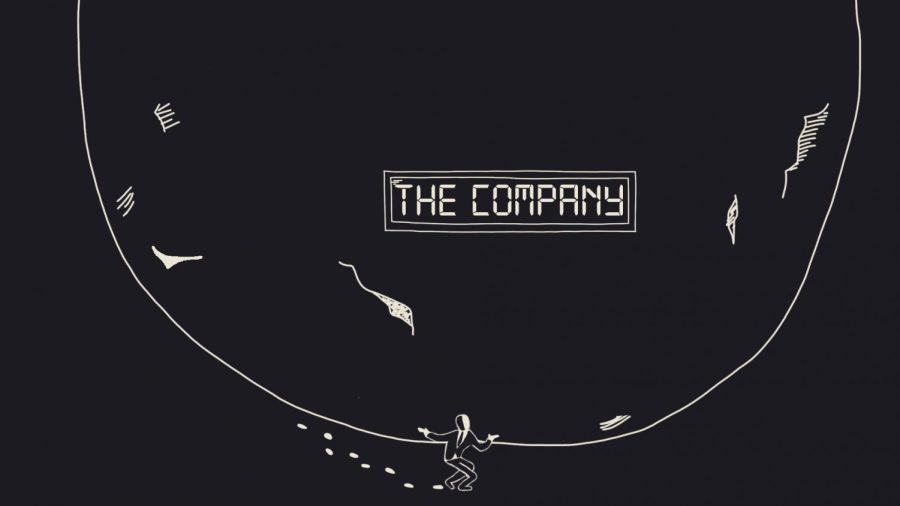The myth of Silicon Valley CEOs
Graphic illustration by Renee Ge
The idea that one man bears the weight and responsibility of an entire company’s success is bizarre.
February 17, 2021
Rags-to-riches stories loom large over Silicon Valley: the two college dropouts who started a billion-dollar company out of their parents’ garage and the Harvard dropout who built one of the most influential social networks are still lauded as paragons of innovation and grit to this day. But the San Francisco Bay Area gives its CEOs too much credit.
It is impossible to ignore the statistics when measuring startup success. As of 2019, the failure rate for small businesses is 90%, with 21.5% failing in the first year, 30% by the second, 50% by the fifth and 70% by the tenth.
“We’re only going to hear about people who had success, but there’s like a lot of failed cases,” said Amay Tripathi, co-president of Lynbrook’s Future Business Leaders of America club.
Yet, despite these daunting odds, there’s no shortage of aspiring entrepreneurs who hope to become one of Silicon Valley’s few successful CEOs. Hundreds of thousands flock to conference events to hear them give advice on how to achieve success in life. People spend hours and hours scrutinizing their habits and lifestyles in an attempt to replicate them.
But while leaders and management practices do sway performance outcomes, the effects are much smaller than most believe. In Daniel Kahneman’s book, Thinking, Fast and Slow, Kahneman argues that hypothetically, if there exists many pairs of companies and that the two companies in each pair are similar except for their CEOs, then the company with the stronger CEO would perform better 60% of the time, compared to the 50% if performance was completely randomized. In the business world, these may be good odds, but in the wider world, this fact combined with the fervent idolization of CEOs seems inconsistent.
“It is difficult to imagine people lining up at airport bookstores to buy a book that enthusiastically describes the practices of business leaders who, on average, do somewhat better than chance,” wrote Kahneman.
Therefore, a dissonance exists between the world’s belief that the right CEO can dramatically turn a company around and reality: many of the factors that affect a company’s success fall outside of the CEO’s control.
One of its causes is hindsight bias. Instead of assessing the quality of a decision by its process, hindsight bias allows the outcome of the decision — whether the result was good or bad — to color the perception of that decision. People often believe that the outcome of past events were more predictable than they actually were.
In the case of evaluating CEO performance, hindsight bias helps to construct the common narrative that CEOs whose companies are not as successful missed out on obvious opportunities and made easily avoidable mistakes in the past. It dismisses the uncertainty found in the present and rewards irresponsible risk takers who take crazy gambles and win. Leaders who are lucky are never punished by the press and their audience for taking too many risks. Instead, they are described as possessing “astute foresight,” navigating their company with an innate surety comparable to hallowed heroes in ancient myths.
The halo effect is another bias that contributes to the idolization of CEOs. This effect is a tendency for people to let their positive feelings about a person or an object bleed into their feelings in other areas.
In Phil Rosenzweig’s book The Halo Effect, Rosenzweig notes that observers’ views of a company’s quality of leadership and customer-focus is often contaminated by information such as profitability and stock market price. People confuse their emotions about a company’s overall performance with their emotions on its CEO. When a company is doing well, its CEO is thought of as decisive and confident, and when a company is not doing well, its CEO is referred to as authoritarian and oppressive — even though the individual CEO’s qualities do not directly translate to their company’s performance. This is another point where flawed judgements encourage observers to conjure up convenient narratives out of nowhere.
Hindsight bias and the halo effect work together to cement the belief that in the cutthroat startup world, where an overwhelming majority of companies fail, the last ones standing must be standing due to its CEO’s skills alone.
It’s human nature to attempt to find narratives in random events, to look back on the past and rationalize countless failures by scavenging for a cause-and-effect relationship between a CEO’s leadership qualities and company performance that doesn’t exist. It’s human nature to nitpick at each CEO’s nature and decisions, to call some CEOs too risky and others too cautious, some too focused and others too muddled and all too error-prone at critical points in time that no logical leader worth their salt would have ever fallen for. It’s human nature to assume that the paved path to success is untouched by bad decisions and that failure never comes from talented, sound leadership. It’s human nature to believe that man has full agency over his own fate, immune from chance and circumstance.
But believing in this illusion is problematic. For one, it erases the work of everyone in a company who isn’t a CEO. For another, by believing that one person is responsible for an entire company’s outcome, by placing that person on a pedestal, average people begin to believe that there is something they lack. The myth of the Silicon Valley CEO is a derivative of the myth of the American dream in general: work hard and success is guaranteed, and if success isn’t here yet, work harder.
So people of all backgrounds keep putting on their black turtlenecks day by day and chasing after mystical, elusive qualities to collect and emulate. They search for vague lessons from the past, leaving out every other variable except for themselves, and blame themselves when these lessons do not apply to the present. They are told that they need to be more aggressive, more approachable, more imaginative, more practical, more confident, more humble and more innovative. They need to be everything at once.
The truth is, they need luck the most. When they stare up at the Californian blue sky, watch the way light glints off the glass of towering office buildings and dream of the grand speeches and glamorous lifestyle attached to a vague notion of entrepreneurial success, they should remember that these CEOs are human, just like everyone else.


































































